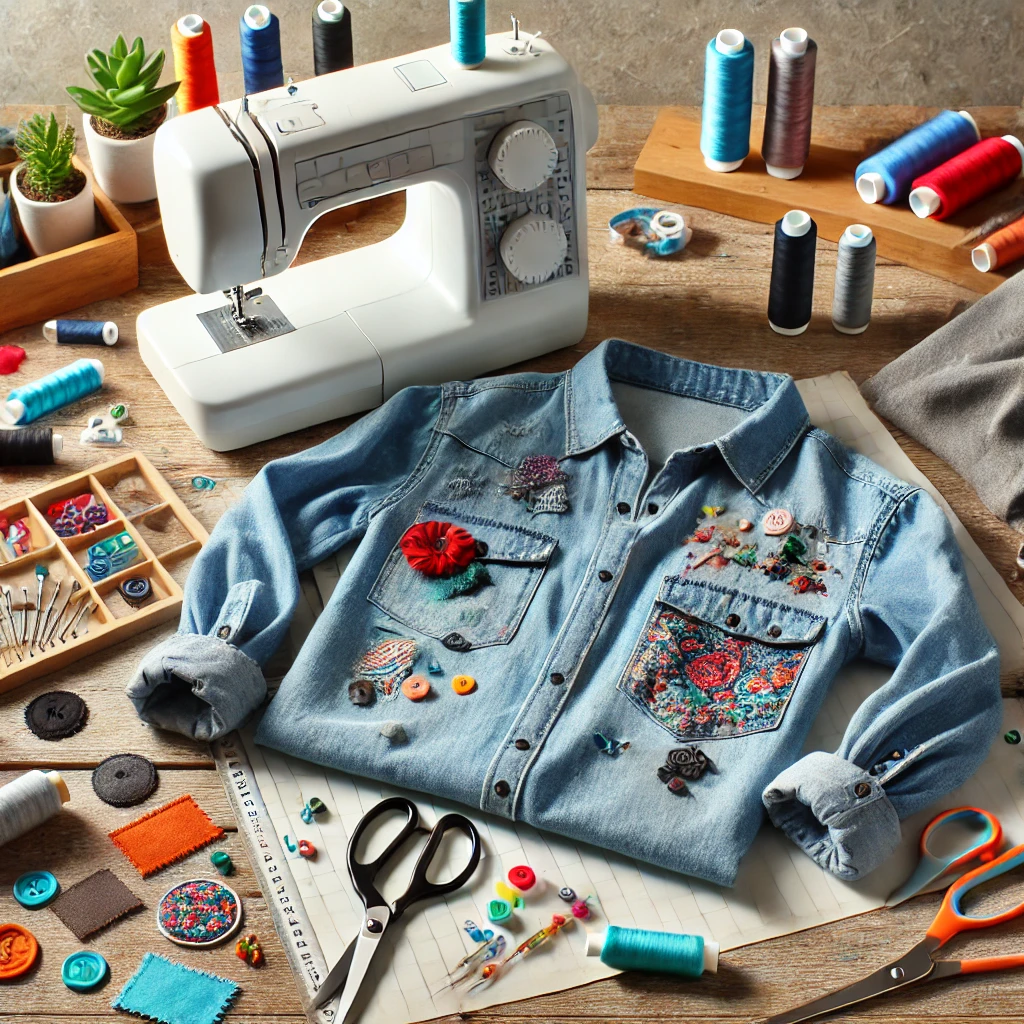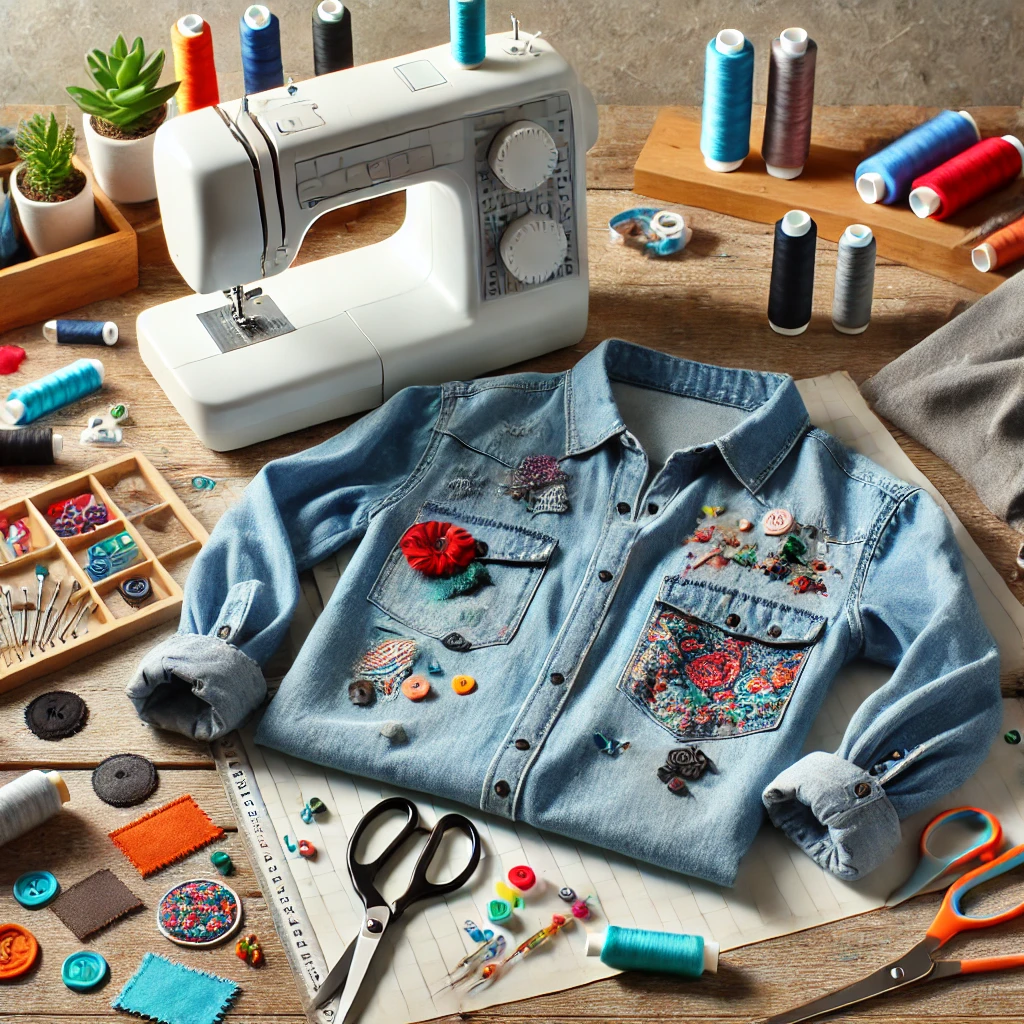
Old shirts often get pushed to the back of the wardrobe or end up as cleaning rags. However, with a bit of creativity and effort, they can be transformed into stylish, functional, or even completely new items. In this guide, we will explore innovative ways to remodel and upcycle your old shirts, breathing new life into them with minimal effort.
1. The Basics of Shirt Remaking: Preparation and Essential Tools
Preparing for Shirt Upcycling
Before starting any upcycling project, it’s important to prepare. First, assess the shirt’s fabric and condition. Cotton and linen work best for remakes, whereas synthetic blends might require different handling techniques.
Shirts That Are Ideal for Remaking
Some shirts lend themselves better to remaking than others. Look for button-downs, oversized tees, or lightly worn shirts with interesting patterns. Torn or stained areas can be repurposed, but completely worn-out fabrics might not hold together well.
Beginner-Friendly Techniques for Shirt Upcycling
If you are new to upcycling, start with simple techniques like cutting and knotting, adding fabric patches, or modifying buttons. These require minimal sewing skills but still create impactful results.
2. Cutting & Sewing Shirts into New Items
Transforming Sleeves into Fashionable Pieces
By cutting off the sleeves of a long-sleeve shirt, you can create a sleeveless top perfect for summer. Off-shoulder and cold-shoulder designs can also be achieved with precise cuts.
Repurposing Shirts into Skirts or Dresses
Oversized shirts make excellent base materials for skirts and dresses. A simple way to do this is by cutting and gathering the fabric at the waistline and sewing an elastic band for comfort.
No-Sew Methods for Easy Shirt Transformations
For those who prefer a quick fix, fabric glue, safety pins, or knots can be used instead of sewing. These methods work well for creating draped tops or tying together a stylish wrap-style garment.
3. Customizing Designs for a Unique Look
Adding Embroidery or Patches
Simple embroidery can elevate the look of an old shirt. Whether it’s adding initials, floral designs, or geometric patterns, hand-stitched details give a personal touch.
Replacing Buttons and Collars
Changing out plain buttons for decorative ones can instantly make an old shirt feel new. Similarly, swapping the collar for a contrasting fabric can give a designer touch.
Using Tie-Dye or Paint for a Fresh Look
Customizing shirts with tie-dye techniques or fabric paint allows for endless creativity. This method is perfect for reviving stained or faded shirts into vibrant statement pieces.
4. Enjoying the Benefits of Upcycling
Turning Shirts into Reusable Accessories
Shirts can be repurposed into stylish tote bags, pouches, or headbands. Fabric scraps can also be turned into reusable napkins or coasters, reducing waste.
Using Extra Fabric for DIY Jewelry
Small pieces of fabric can be turned into earrings, bracelets, or fabric-wrapped bangles. This is an excellent way to use every part of the shirt without creating waste.
Making Pet Clothes or Kids’ Wear
Old shirts can be resized into cute outfits for children or pets. With some simple sewing adjustments, you can create stylish and comfortable clothing for your little ones.
5. Styling Remade Shirts
Casual Looks with Upcycled Shirts
Pairing a customized shirt with denim creates a laid-back and stylish appearance. Whether it’s a cropped top or a redesigned flannel, upcycled shirts add character to everyday outfits.
Office-Appropriate Upcycled Shirt Styles
With subtle modifications, remade shirts can be worn in professional settings. A tailored cut or elegant detailing can turn an upcycled item into office attire.
Layering Techniques for Versatile Outfits
Upcycled shirts work well for layering. Worn over turtlenecks, dresses, or with vests, they can create unique and fashionable outfits for any season.
Conclusion
Upcycling old shirts is an excellent way to refresh your wardrobe while reducing waste. With simple tools and creativity, you can transform forgotten garments into new and stylish pieces. Whether you choose to cut, sew, or paint, each project results in a unique and personal fashion statement.



Comment